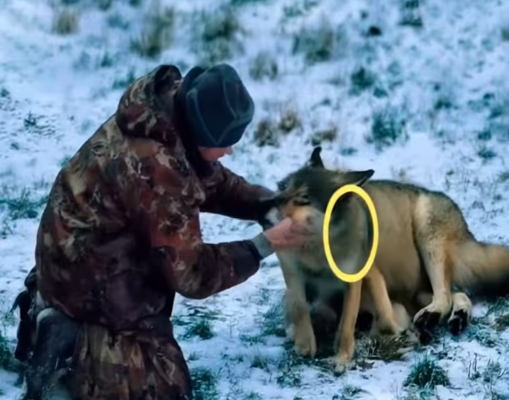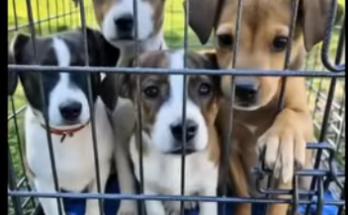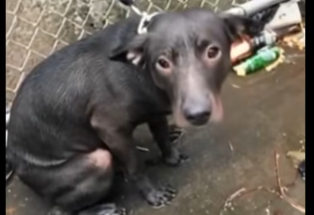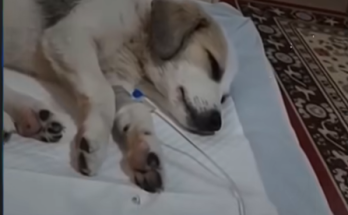The road was empty. A long stretch of dirt and gravel carved through the forested hills of the Pacific Northwest. Daniel Harris, a 38-year-old park ranger and former wildlife biologist, was on his way home from a quiet day of solo hiking and trail inspection. His truck rattled over potholes, and the radio played low in the background. Just as dusk was falling, and the first stars began blinking through the trees, he saw something that made him slam the brakes.
On the side of the road, barely visible, a small, gray creature stumbled across the gravel. Its movements were frantic and clumsy — like it didn’t belong there. As Daniel approached on foot, flashlight in hand, he realized what it was.
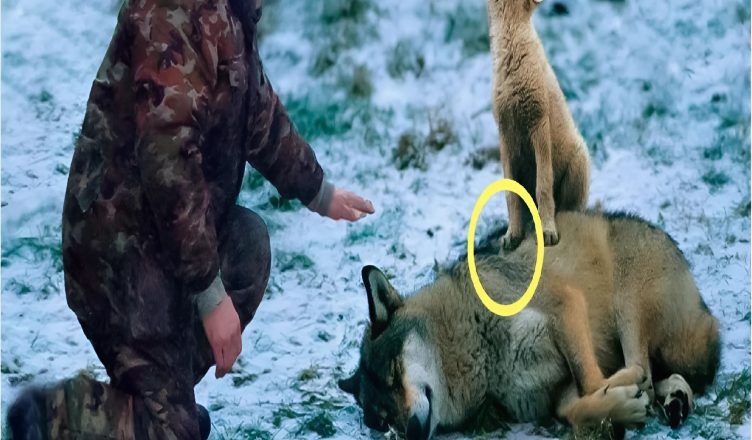
A wolf cub. Alone, shivering, and crying.
Daniel had seen wolves before, but never like this. He approached slowly, cautiously. The cub didn’t run. Instead, it whimpered and limped toward the forest’s edge, pausing every few steps as if urging him to follow.
He hesitated. Wild animals, especially wolves, were unpredictable. But curiosity and instinct got the better of him. He followed the cub into the trees, where, after a short walk, he found her — the cub’s mother.
She was lying on her side, breathing heavily, one leg twisted unnaturally. A deep wound stretched across her torso, likely from a trap or a sharp branch. Her eyes flicked to Daniel. She didn’t growl, didn’t move — just stared. She was done fighting.
Daniel’s training kicked in. Slowly, methodically, he opened his emergency kit. He cleaned the wound, bandaged it with what he had, and gave her water. The cub stayed close, eyes wide, tail tucked.
Daniel didn’t sleep that night. He stayed by them in the forest, keeping the fire low, speaking softly when necessary. At dawn, the mother wolf stood on shaky legs. For a moment, she just looked at him — a long, deliberate gaze. Then, with her cub beside her, she limped away into the woods without a sound.
He thought that was the end of it.
But he was wrong.
Three days later, Daniel returned to the same trail for routine observation. It was quiet, uneventful — until he reached the same curve in the road. There, standing on a hill just beyond the tree line, were five wolves.
He froze.
At the center stood the mother. Her wound was healing. The cub was beside her, but now there were others — a full pack. They stood still, watching. Daniel didn’t move. He felt no fear, only awe.
Then something extraordinary happened.
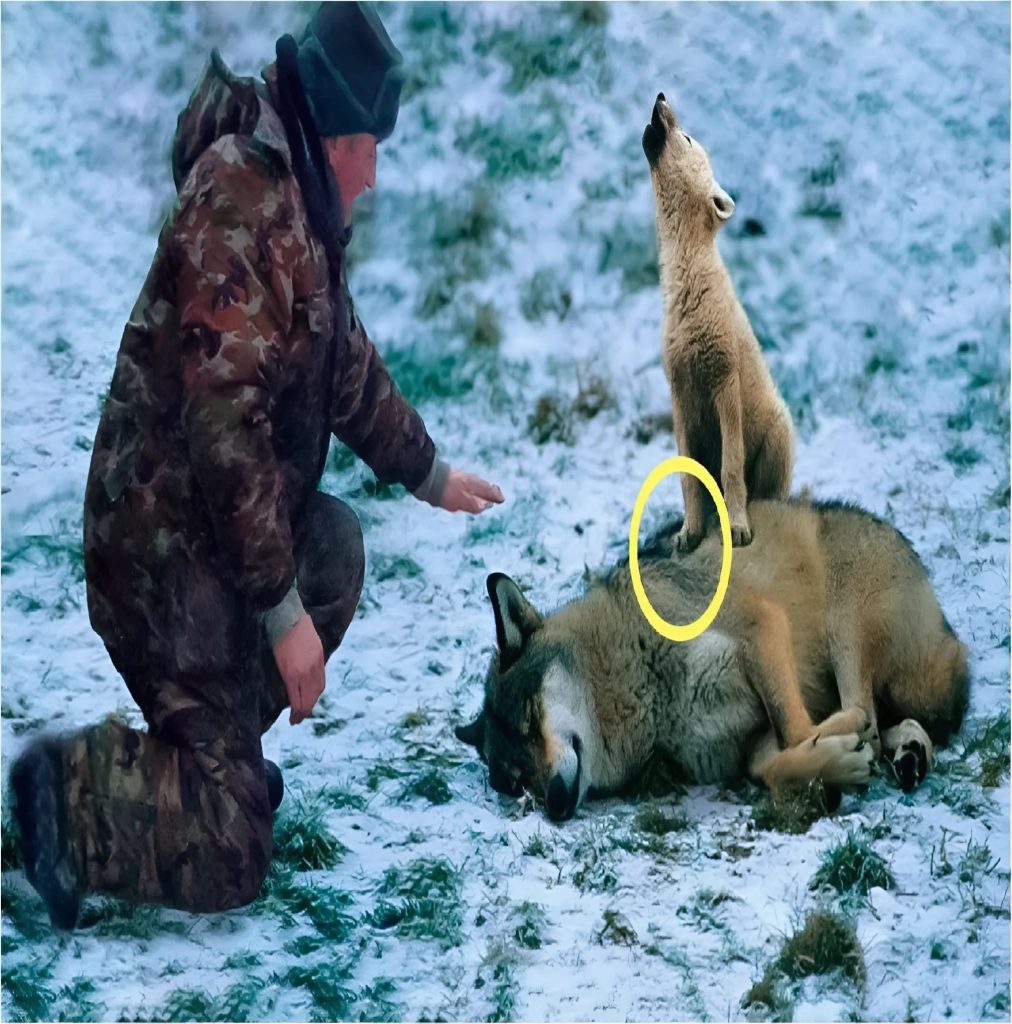
The mother stepped forward and dropped something onto the ground before retreating.
It was a deer antler — old, massive, and perfectly intact. A gift. Wolves are known to bring food or bones to their young or to each other, but to a human? Daniel retrieved it cautiously. It was unlike anything he’d seen in his years in the wild — clean, white, and shaped almost like a crescent moon.
But the gift wasn’t the only thing that changed his life.
From that day on, wherever Daniel went in those woods, he felt watched — not by predators, but by protectors. Hikers reported seeing wolves keeping a quiet distance behind him, almost like a shadow. Birds didn’t scatter when he walked. Deer didn’t bolt at his scent. It was as if the entire forest recognized him.
Over the months, Daniel began documenting his experiences, not for science or recognition, but because the connection was unlike anything he had known. He had saved a single wolf — and in return, the wild had embraced him.
The story went viral after he shared it anonymously in an online forum for conservationists. His post, titled “I Saved a Wolf. Now the Forest Knows Me,” garnered millions of views in days. Skeptics called it romanticized nonsense. But those who had felt the forest — truly felt it — knew it was something more.
Soon, major environmental groups reached out. Documentarians came knocking. But Daniel refused all interviews. He didn’t want fame. He only wanted to walk the woods, to keep doing what he had always done — protect the lives that couldn’t speak for themselves.
One evening, standing on a ridge overlooking the vast sea of green, Daniel heard a familiar sound — the long, echoing howl of a wolf. It wasn’t a warning or a threat. It was a call. A recognition. A thank you.
And in that moment, Daniel understood something deeply human: that kindness given without expectation can return in forms the heart may never have imagined — sometimes even from the wild itself.
